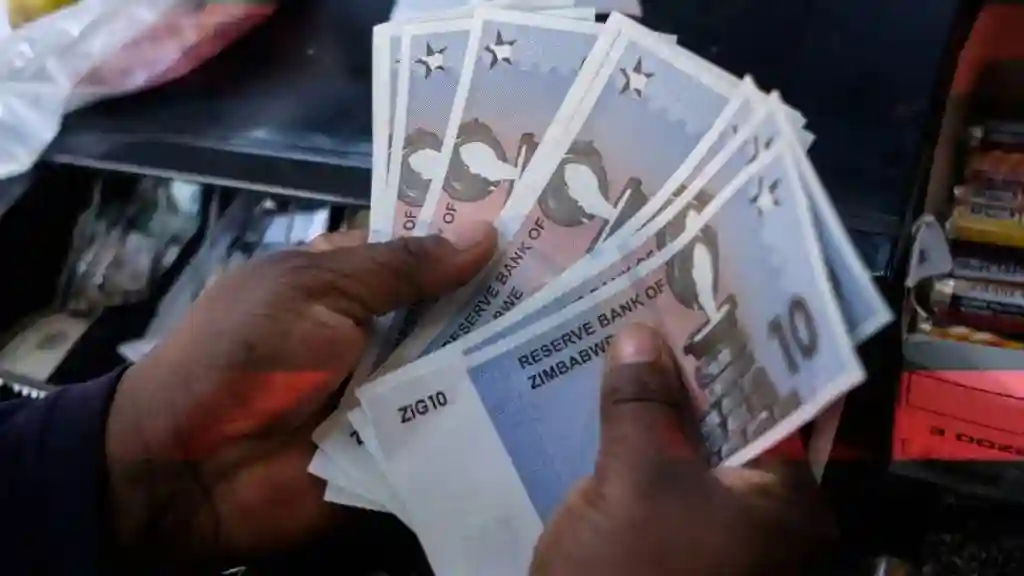Following President Emmerson Mnangagwa’s remarks on Thursday, July, stating that the ZiG would become the sole legal tender before 2030, economist Gift Mugano offered his perspective.
Mugano stated that the government must first establish the minimum requirement for the new currency to succeed before implementing such a policy.
He also advised that policymakers should not introduce new policies on a whim, but rather listen to the needs of the market and strive to develop evidence-based, market-driven policies. Wrote Mugano:
On President Emmerson Mnangagwa’s Statement Regarding the Introduction of Monocurrency (i.e., ban of USD):
This week, President Mnangagwa announced that he will soon introduce ZiG as a monocurrency (i.e., in less than 2 years) if he is satisfied that ZiG is now circulating across the whole country.
Well on time before President Mnangagwa pronounces policy decision to ban the use of the USD, I thought that it is wiser that I capitalise on the President’s open-door policy [George Charamba, the Deputy Chief Secretary in the Office of the President and Cabinet (Presidential Communications)]and share with him my humble views on critical considerations which must be taken into account before introducing a new currency or mono-currency:
1) GOZ must develop a culture of seeing through its policies to the expiration date before making conflicting statements. For example, the pronouncements by the President that he will soon introduce ZiG as a monocurrency is in direct contradiction with the SI 218 of 2023 which extended the use of the multiple currency system to December 2030. This President’s statement, him being the AUTHORITY, will put markets into disarray and will see banks cutting back on USD lending – this will come with massive negative consequences on the economy. In the same vein, some banks with long-term loans in USD will start counting their losses – this will erode trust in government policies and confidence levels.
2) The introduction of a local currency requires basic minimum requirements such as current account surplus, fiscal consolidation (we have to reduce our debt significantly to regions averaging 30% of GDP); a highly productive economy; single-digit inflation and stable exchange rates. In reality, it is very difficult to attain all these conditions at once. However, we must strive to build a productive and competitive economy. I would like to argue that the best way to back our currency is to back it with production. We need disruptive structural policies, that is, industrial policy, agricultural policy, trade policy and energy policy & energy master plan. These policies must be anchored on twin objectives, that is, import substitution and export drive.
3. The informal sector has always been and will always be a hindrance to government policies. The informal sector runs its affairs based on informal rules, not government policies. In its current state, GOZ has no capacity to rein in the informal business. We must formalise the informal sector. The best way to formalise the informal sector is to build a productive economy (see (2)) which will see some sections of the informal sector such as vending and boot economy disappearing as people move into the formal sector/secures formal jobs. Again, with a productive economy, genuine small businesses/informal sectors will remain such as distributors and, through market linkages, will be formalised. In short, we must grow the formal sector.
4. We need to build confidence. Confidence building requires critical actors such as banks and GOZ to walk the talk. Banks, for example, must provide sound banking products at affordable costs/reduce bank charges drastically. The main source of income for banks must be interest rate not bank charges! GOZ must develop evidence-based & demand-driven, credible and predictable policies. Most importantly, it is my humble view that GOZ must undertake nationwide consultations which will lead to a national dialogue on currency crisis and possible remedies. The output of this dialogue should be a de-dollarisation roadmap which is built on the realities facing the country and national consensus.
When introducing a new currency or addressing the currency crisis, it is my humble view that we must be more pragmatic and inclusive in our approach. The fact of the matter is that our country has been held back by currency crisis for close to 27 years, that is, from 14 November 1997 to date and there is no sign of it ending any time soon. This means that we need to do things differently hence my foregoing submission.
As I end my submission, I would like to remind President Mnangagwa of critical events regarding currency matters in Zimbabwe:
1) In February 2009, GOZ adopted the USD as the main currency. The market dumped ZWD and introduced USD. The USD was not introduced by Patrick Chinamasa as he always claims. He was the acting Minister of Finance – he was forced by the market to adopt the USD. Here is the evidence, Chinamasa’s budget of 2009 was in quintillions of ZWD, not USD.
2) My good brother, Honourable Mthuli Ncube introduced monocurrency on 24 June 2019. On the same date, I was the first guest at StarFM on Linda Muriro on Monday and I underscored that we will return to USD in March 2020. I made repeated claims on StarFM on subsequent programmes of Linda Muriro on Monday. It came to pass. In March 2020, we went back to USD. I am raising this precedence so that we can draw lessons from history.
Lessons:
1) We must establish the minimum requirement for the introduction of the new currency if we want our currency to succeed (see my submission above).
2) When it comes to economics, the market is the best constitutional court on any economic matter. Policymakers must always listen to the needs of the market and must always endeavour to develop evidence-based and market-driven policies.
Yours Truly,
Professor Gift Mugano (Ph.D)
More: Pindula News

